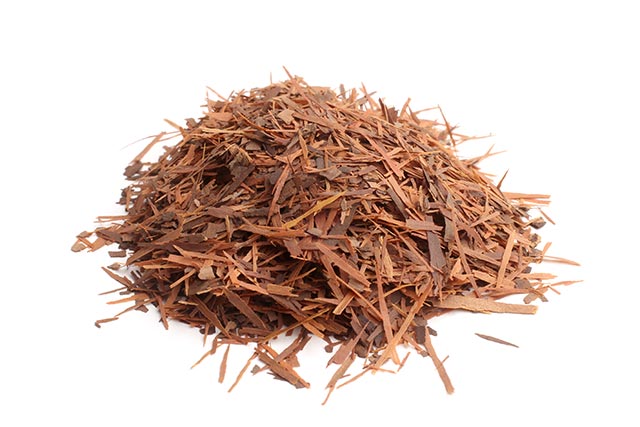Taheebo, a folk remedy for a wide variety of health disorders, now shown to prevent colitis
09/16/2018 / By Edsel Cook

Here’s another great reason to add taheebo to your morning cuppa: A South Korean study showed that a water-based extract derived from the traditional herbal medicine could alleviate the clinical symptoms of colitis, an increasingly common inflammatory bowel disease (IBD).
IBDs stem from immune problems in the gastrointestinal tract. Ulcerative colitis is one of the two major types of such diseases; the condition is triggered by the activity of T helper type 17 (Th17) cells and mediated by Th2 cells.
Normally, the spread of ulcerative colitis and other IBDs is mitigated by the immune system of the host. The latter works to maintain healthy homeostasis in the intestines by releasing regulatory T (Treg) cells that counter the effects of inflammation-causing Th17 cells. There are dendritic cells in the intestine that can either trigger IBDs or help prevent the development of the diseases. These cells can produce either Th17 cells that trigger ulcerative colitis or Treg cells that suppress IBDs. Treg cells are produced if the dendritic cells are stimulated by retinoic acid, a metabolic product of vitamin A. In turn, these protective cells release interleukin 10 (IL10), a cytokine that prevents inflammation and maintains balance in the gut.
Similar to dendritic cells, macrophage can also be altered to either induce or suppress inflammation. Interferon-gamma (IFNg) or lipopolysaccharide (LPS) will polarize these phagocytes to damage the gut, while IL4 encourages the cells to repair damaged tissues. (Related: Science-backed eating tips for those with inflammatory bowel disease.)
100% organic essential oil sets now available for your home and personal care, including Rosemary, Oregano, Eucalyptus, Tea Tree, Clary Sage and more, all 100% organic and laboratory tested for safety. A multitude of uses, from stress reduction to topical first aid. See the complete listing here, and help support this news site.
A potential herbal defense against inflammatory bowel diseases
Taheebo is derived from the dried bark of the taheebo tree (Tabebuia avellanedae). It is used as a folk remedy throughout South America.
Earlier studies have shed light on the inflammation-suppressing properties of taheebo, as well as its ability to treat ulcers.
Researchers from the Sejong University and the Hongcheon Institute of Medicinal Herb investigated the ability of a water-based extract to remedy ulcerative colitis. They created a mice model with a number of animals receiving taheebo water extract for five days. Other mice were given ordinary water. Both treated and untreated mice were then given colitis-inducing chemicals for five days. At the end of that period, the animals were sacrificed for analysis of their blood and tissue samples.
Taheebo extract can protect the intestines from IBDs
The results showed that taheebo water extract encouraged dendritic cells in treated mice to release Treg cells that suppressed the inflammatory response of the immune system. The extract also polarized macrophages with anti-inflammatory properties, allowing the large cells to repair tissue that has been damaged by inflammation.
Furthermore, it also reduced the amount of inflammatory T helper cells present. This combination significantly reduced the extent and the damage caused by the inflammatory bowel disease.
In addition to increasing the number of anti-inflammatories and immunosuppressants, the taheebo water extract also improved the clinical symptoms of colitis. Treated mice showed greater body weight and less inflammation in their colon tissues compared to untreated animals.
Based on their findings, the researchers concluded that taheebo water extract was able to alleviate acute colitis in mice. They raised the possibility of employing taheebo as a treatment method for the symptoms of inflammatory immune disorders like IBDs.
Furthermore, since earlier reports have concluded that taheebo water extract could also mitigate obesity from high-fat diets, they theorized that taheebo could also prevent the onset of diabetes. They came to this line of reasoning because obesity and diabetes are metabolic diseases that are also partly triggered by the same macrophages that can cause IBD.
Check out Herbs.news to learn more about other herbal teas that can protect your bowels from inflammation.
Sources include:
Tagged Under: alternative medicine, anti-inflammatory, colitis, digestive health, herbal medicine, herbal teas, Herbs, IBD, immunosuppressants, inflammation, inflammatory bowel diseases, natural cures, natural medicine, natural remedies, plant medicine, prevention, remedies, Taheebo, tea




















